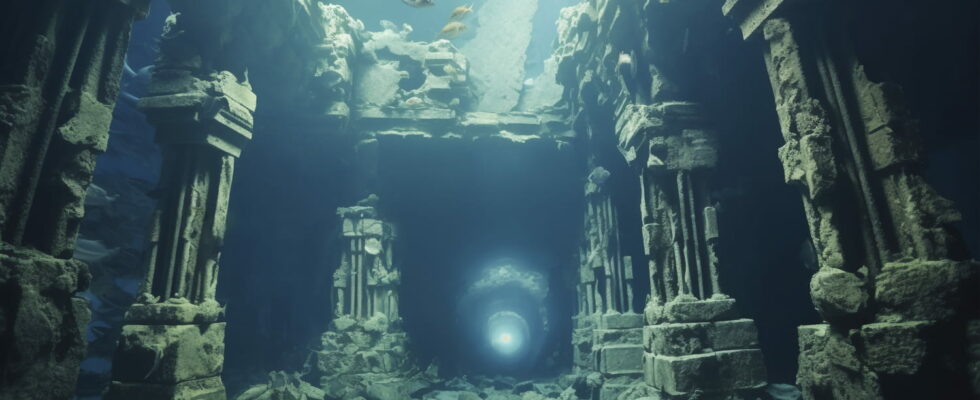A team of Spanish researchers has just led an expedition that could finally solve the mystery of Atlantis, the legendary sunken city that has fascinated humanity for centuries.
For centuries, Atlantis has haunted the imagination of men. Described by Plato as a thriving island, an advanced civilization that attempted to conquer the world before being swallowed by the ocean in one fateful day and night, it remains one of history’s greatest unsolved mysteries. Where was it? Did it really exist, or was it just a philosophical metaphor? Legends abound, but until recently, hard evidence of its reality was sorely lacking. Now, a team of scientists believe they have found a crucial clue that could shed light on the mystery.
For years, many expeditions have tried to locate Atlantis, some searching for it in the depths of the Mediterranean, others in the heart of the Atlantic, or even in Antarctica. But despite centuries of theories, no concrete proof has ever emerged. Until Spanish researchers embarked on a new quest, armed with cutting-edge technology, to explore an uncharted area of the ocean.
Their mission took them deeper than ever before, to a region no one had ever associated with Atlantis. With the help of an underwater robot, they lowered their instruments into the abyss, peering into seabeds that had remained untouched for millions of years. At more than 2,500 meters deep, they made a startling discovery: a series of mysterious geological formations that may well match ancient descriptions of Atlantis.
These submerged lands, whose contours suggest once habitable islands, have striking features. Researchers have identified beaches, sand dunes and cliffs, all hidden under miles of water. Surprisingly, these landforms are located off the coast of Lanzarote, an island in the Canary Islands, the Spanish archipelago located off the northwest coast of Africa. Studying these submerged remains, scientists have named this intriguing site Los Atlantes, in homage to the legend that has captivated so many generations.
Luis Somoza, a marine geologist leading the expedition, remains cautious but enthusiastic: “This could be the origin of the legend of Atlantis,” he said. The region’s once-active volcanoes may have caused the islands to gradually sink into the ocean, just as the legend of the lost city tells us.
The discovery has rekindled speculation. While researchers cannot yet say for sure that they have found Atlantis, they are closer than ever to unraveling the secret. Off the coast of Lanzarote, in the dark depths of the ocean, a part of the legend seems to have resurfaced.
